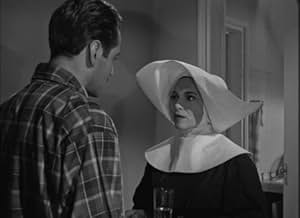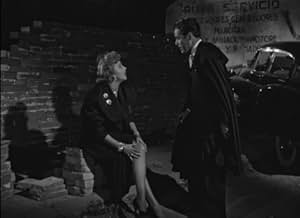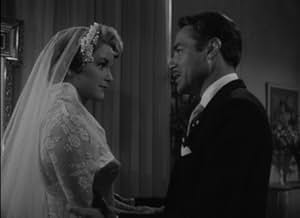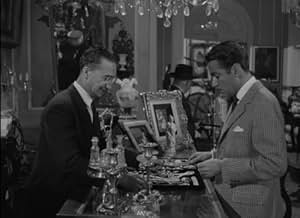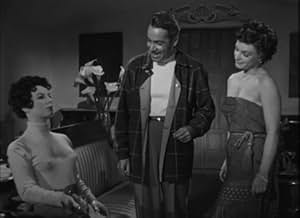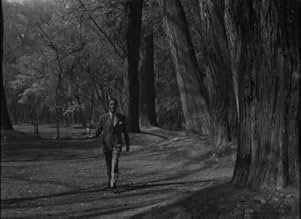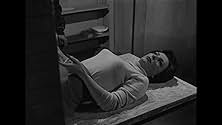ÉVALUATION IMDb
7,6/10
6,2 k
MA NOTE
Un épisode de son enfance associe à jamais léros dArchibald au désir de meurtre, ce qui est tout de même une complication dans la vraie vie Désirant Lavinia une modèle pour artistes, il brûl... Tout lireUn épisode de son enfance associe à jamais léros dArchibald au désir de meurtre, ce qui est tout de même une complication dans la vraie vie Désirant Lavinia une modèle pour artistes, il brûlera un mannequin la figurant et se libèrera de sa malédiction. [255]Un épisode de son enfance associe à jamais léros dArchibald au désir de meurtre, ce qui est tout de même une complication dans la vraie vie Désirant Lavinia une modèle pour artistes, il brûlera un mannequin la figurant et se libèrera de sa malédiction. [255]
- Director
- Writers
- Stars
- Prix
- 1 victoire et 8 nominations au total
Ariadne Welter
- Carlota Cervantes
- (as Ariadna Welter)
José María Linares-Rivas
- Willy Corduran
- (as J.M. Linares Rivas)
Enrique Díaz Indiano
- Señor de la Cruz
- (as Enrique Indiano)
Carlos Martínez Baena
- Padre Alonso
- (as Carlos M. Baena)
Armando Acosta
- Hombre casa juegos
- (uncredited)
Eduardo Alcaraz
- Gordo Azuara
- (uncredited)
Janet Alcoriza
- Turista de Oklahoma
- (uncredited)
Avis en vedette
10zetes
Perhaps my favorite of Buñuel's Mexican years. As a child, Archibaldo de la Cruz willed the death of his young, sexy nanny through the device of a magical music box. As an adult, he finds this box at a pawn shop, and it awakens the exciting feelings he had as he stood over the corpse of his nanny checking out her exposed thigh. He decides to become a serial killer, but it never quite works out that way. Every person he sets out to kill ends up being murdered by another's hand. Actually, I shouldn't say "person," as Archibaldo's violent emotions only arise towards women. There is some heavy Catholic symbology to the picture, and the violence towards women obviously arises from the twisted mores of Catholicism. His first intended victim as an adult, for example, is a brazen tramp who openly expresses her wish to seduce him to get back at her husband. Buñuel had perhaps the most impeccable sense for creating finales, and the one here is as odd and remarkable as any other. Watch the two actions Archibaldo performs with his cane. I'm not 100% sure what they signify, but I know that must be of the utmost importance. Ensayo de un crimen should be watched back to back with Buñuel's 1953 film, Él, also about a man being driven insane over his wife because of his strict religious beliefs. 10/10.
Criminal Life of Archibaldo de la Cruz, The (1955)
** 1/2 (out of 4)
Luis Bunuel film that sounds more interesting than it turns out to be. As a young child, Archibaldo is told of a magical magic box that when turned on will kill. As an adult, Archibaldo comes across this box again and this times plans to use it to help him become a serial killer. There's a lot of black humor scattered throughout the film but very little of it made me laugh. The opening segments bashing the rich were funny but the film slowly falls apart in the middle and never regains any speed. The story is a very good one but the director does very little with it, which is a shame because this should have been a whole lot better.
** 1/2 (out of 4)
Luis Bunuel film that sounds more interesting than it turns out to be. As a young child, Archibaldo is told of a magical magic box that when turned on will kill. As an adult, Archibaldo comes across this box again and this times plans to use it to help him become a serial killer. There's a lot of black humor scattered throughout the film but very little of it made me laugh. The opening segments bashing the rich were funny but the film slowly falls apart in the middle and never regains any speed. The story is a very good one but the director does very little with it, which is a shame because this should have been a whole lot better.
Again, Bunuel explores the disturbing mentality of a member of the privileged class. The premise is very amusing: a would-be serial killer whose attempts are constantly thwarted by circumstance. The film has some wonderful touches like the demented music box theme, the fantasies when Archie gets in one of his murderous moods, and again a focus on the lower half of the female form. Ernesto Alonso and the entire cast are terrific. However, the film does have a certain sluggishness to it, and the first two acts in particular seem to contain a lot of superfluous material that doesn't add much to the whole. I also feel the ending could use more of a cynical bite to it. Still, it's better than a lot of his 50's work, if not quite as remarkable as EL or LOS OLVIDADOS.
Handsome and well-heeled Archibaldo has been convinced from boyhood that he possesses a music box that has the power to kill. He embarks upon a career as a serial murderer in which his intended victims are ravishing looking females but Fate continually thwarts his lethal intentions and his murders never get past the fantasy stage.
The most notorious scene in the film and one of which only this director is capable, is where Archibaldo consigns to the flames of a kiln a wax model of one of his potential victims who has slipped through his grasp. This macabre episode has acquired a tragically ironic overtone as the woman who has modelled for the dummy is played by Miroslava Stern who was cremated shortly after filming completed, having taken her own life. Bunuel was of course to employ a 'prosthetic limb' to great effect in 'Tristana'.
Working within the budgetary limitations of Mexican cinema, director Luis Bunuel has fashioned a stylish, sophisticated and technically polished piece that contains some delicious performances and bizarre Bunuelian moments that linger long in the memory.
Although condemned by circumstances to being innocent of murder Archibaldo still feels the need to 'confess' to the police. He is politely dismissed by a detective with the words:"thinking about murdering someone does not constitute a crime." This will strike a chord with most of us I am sure!
The most notorious scene in the film and one of which only this director is capable, is where Archibaldo consigns to the flames of a kiln a wax model of one of his potential victims who has slipped through his grasp. This macabre episode has acquired a tragically ironic overtone as the woman who has modelled for the dummy is played by Miroslava Stern who was cremated shortly after filming completed, having taken her own life. Bunuel was of course to employ a 'prosthetic limb' to great effect in 'Tristana'.
Working within the budgetary limitations of Mexican cinema, director Luis Bunuel has fashioned a stylish, sophisticated and technically polished piece that contains some delicious performances and bizarre Bunuelian moments that linger long in the memory.
Although condemned by circumstances to being innocent of murder Archibaldo still feels the need to 'confess' to the police. He is politely dismissed by a detective with the words:"thinking about murdering someone does not constitute a crime." This will strike a chord with most of us I am sure!
In the 50's, in Mexico, Archibaldo de la Cruz (Ernesto Alonso) comes to a judge to confess crimes of his own. He tells his life since he was a spoiled boy, in the days of the Mexican revolution, when he won a music box from his mother and developed a bizarre desire of killing women, becoming a serial killer. In the end, this movie is a psychological dark comedy of the Mexican phase of Buñuel. I have just had the chance to see this film on DVD, recently released by the best Brazilian distributor (Versátil), and I found it another excellent work of Buñuel, one of my favorite directors ever. The story is very ironic and unpredictable, and I totally disagree with the User Comments `Minor Buñuel' indicated for this film. My vote is nine.
Title (Brazil): `Ensaio de um Crime' (`Rehearsal for a Crime')
Title (Brazil): `Ensaio de um Crime' (`Rehearsal for a Crime')
Le saviez-vous
- AnecdotesThe movie was shot in the middle of a big economic crisis for the Mexican cinema. Production was about to be shut down a few times and the famous scene with the mannequin being cremated was filmed only once because they couldn't afford another mannequin.
- GaffesWhen the nun falls down the empty elevator shaft she screams loudly but the sound is obviously that of a man; in fact, it sounds like a Wilhelm Scream.
- ConnexionsFeatured in Miroslava (1993)
Meilleurs choix
Connectez-vous pour évaluer et surveiller les recommandations personnalisées
- How long is The Criminal Life of Archibaldo de la Cruz?Propulsé par Alexa
Détails
- Date de sortie
- Pays d’origine
- Langues
- Aussi connu sous le nom de
- The Criminal Life of Archibaldo De La Cruz
- Lieux de tournage
- société de production
- Consultez plus de crédits d'entreprise sur IMDbPro
- Durée1 heure 29 minutes
- Couleur
- Mixage
- Rapport de forme
- 1.37 : 1
Contribuer à cette page
Suggérer une modification ou ajouter du contenu manquant

Lacune principale
What is the Japanese language plot outline for La vie criminelle d'Archibald de la Cruz (1955)?
Répondre

